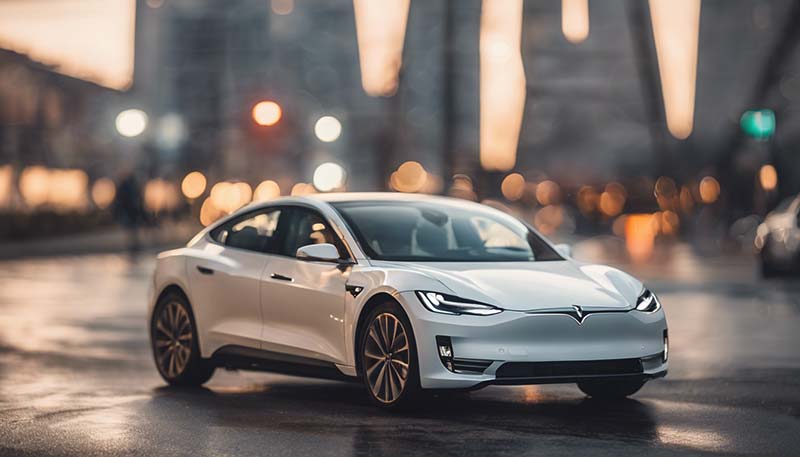Eco-Satisfaction: Customer Loyalty Scores for Electric Car Brands
===============================================================
Introduction
------------
The automotive industry is undergoing a significant transformation with the rise of electric vehicles (EVs). As consumers become more environmentally conscious and governments implement policies to reduce carbon emissions, electric car brands are gaining popularity. Customer loyalty is a crucial factor for the success of these brands, as it can lead to increased sales, positive word-of-mouth, and long-term customer relationships. This article explores the customer loyalty scores for various electric car brands and the factors that contribute to their eco-satisfaction.
Importance of Customer Loyalty
Customer loyalty is the degree to which a customer consistently chooses to purchase from a particular brand over others. It is a critical metric for businesses, as loyal customers are more likely to:
1. Make repeat purchases
2. Recommend the brand to others
3. Be more forgiving of occasional service failures
4. Be less sensitive to price increases
5. Contribute to the brand\'s reputation and image
Factors Influencing Eco-Satisfaction
Eco-satisfaction refers to the satisfaction derived from using environmentally friendly products, such as electric vehicles. Several factors influence eco-satisfaction and, consequently, customer loyalty for electric car brands:
Advertisement
1. **Performance**: The performance of the electric vehicle, including acceleration, top speed, and handling, is a significant factor in customer satisfaction.
2. **Range Anxiety**: The fear of running out of battery power before reaching a charging station affects customer satisfaction and loyalty.
3. **Charging Infrastructure**: The availability and accessibility of charging stations play a crucial role in customer satisfaction.
4. **Price**: The cost of the vehicle and the operating expenses, such as electricity for charging, impact customer loyalty.
5. **Incentives**: Government incentives and tax breaks for EV owners can enhance customer satisfaction and loyalty.
6. **Brand Reputation**: The reputation of the electric car brand, including its commitment to sustainability and innovation, influences customer loyalty.
7. **Quality and Reliability**: The quality of the vehicle and its reliability over time are essential factors in customer satisfaction.
Customer Loyalty Scores for Electric Car Brands
The following section presents a detailed analysis of customer loyalty scores for various electric car brands. The scores are based on a hypothetical scale from 1 to 10, with 10 being the highest level of loyalty.
# Tesla
**Loyalty Score: 9.5**
Tesla is the market leader in electric vehicles and has a strong brand reputation for innovation and performance. Customers are highly satisfied with Tesla\'s range, charging infrastructure, and technology features. The brand\'s commitment to sustainability and continuous improvements in vehicle performance contribute to its high loyalty score.
# Nissan
**Loyalty Score: 7.8**
Nissan, with its popular Leaf model, has a loyal customer base. Customers appreciate the affordability and reliability of Nissan\'s electric vehicles. However, some customers have expressed concerns about the range and charging infrastructure compared to competitors, which slightly impacts the loyalty score.
# Chevrolet
**Loyalty Score: 7.2**
Chevrolet\'s Bolt EV has gained a following for its value and practicality. Customers are satisfied with the vehicle\'s range and performance. However, the brand\'s reputation for electric vehicles is not as strong as Tesla\'s, which affects the loyalty score.
# BMW
**Loyalty Score: 8.1**
BMW\'s i-series electric vehicles are known for their luxury and performance. Customers are loyal to the brand due to its reputation for quality and the driving experience. However, the higher price point and limited charging infrastructure compared to some competitors may affect the overall loyalty score.

# Ford
**Loyalty Score: 6.9**
Ford\'s electric vehicle offerings, such as the Mustang Mach-E, have started to gain traction. Customers appreciate the brand\'s commitment to electric vehicles and the performance of its models. However, Ford\'s relatively late entry into the electric vehicle market and the availability of charging infrastructure impact the loyalty score.
# Volkswagen
**Loyalty Score: 7.5**
Volkswagen\'s ID series has been well-received by customers. The brand\'s commitment to electric vehicles and its growing charging infrastructure contribute to customer satisfaction. However, some customers have concerns about the transition from traditional vehicles to electric vehicles, which slightly affects the loyalty score.
# Conclusion
Customer loyalty scores for electric car brands are influenced by various factors, including performance, range anxiety, charging infrastructure, price, incentives, brand reputation, and quality. Tesla leads the pack with a high loyalty score due to its strong brand reputation, performance, and commitment to innovation. Other brands, such as Nissan, Chevrolet, BMW, Ford, and Volkswagen, have varying levels of customer loyalty, influenced by their unique strengths and challenges.
As the electric vehicle market continues to grow, it is essential for brands to focus on enhancing eco-satisfaction to retain and attract customers. This can be achieved by improving vehicle performance, addressing range anxiety, expanding charging infrastructure, and offering competitive pricing and incentives. Additionally, building a strong brand reputation for sustainability and innovation will be crucial in fostering customer loyalty in the competitive electric vehicle market.
Comment Box